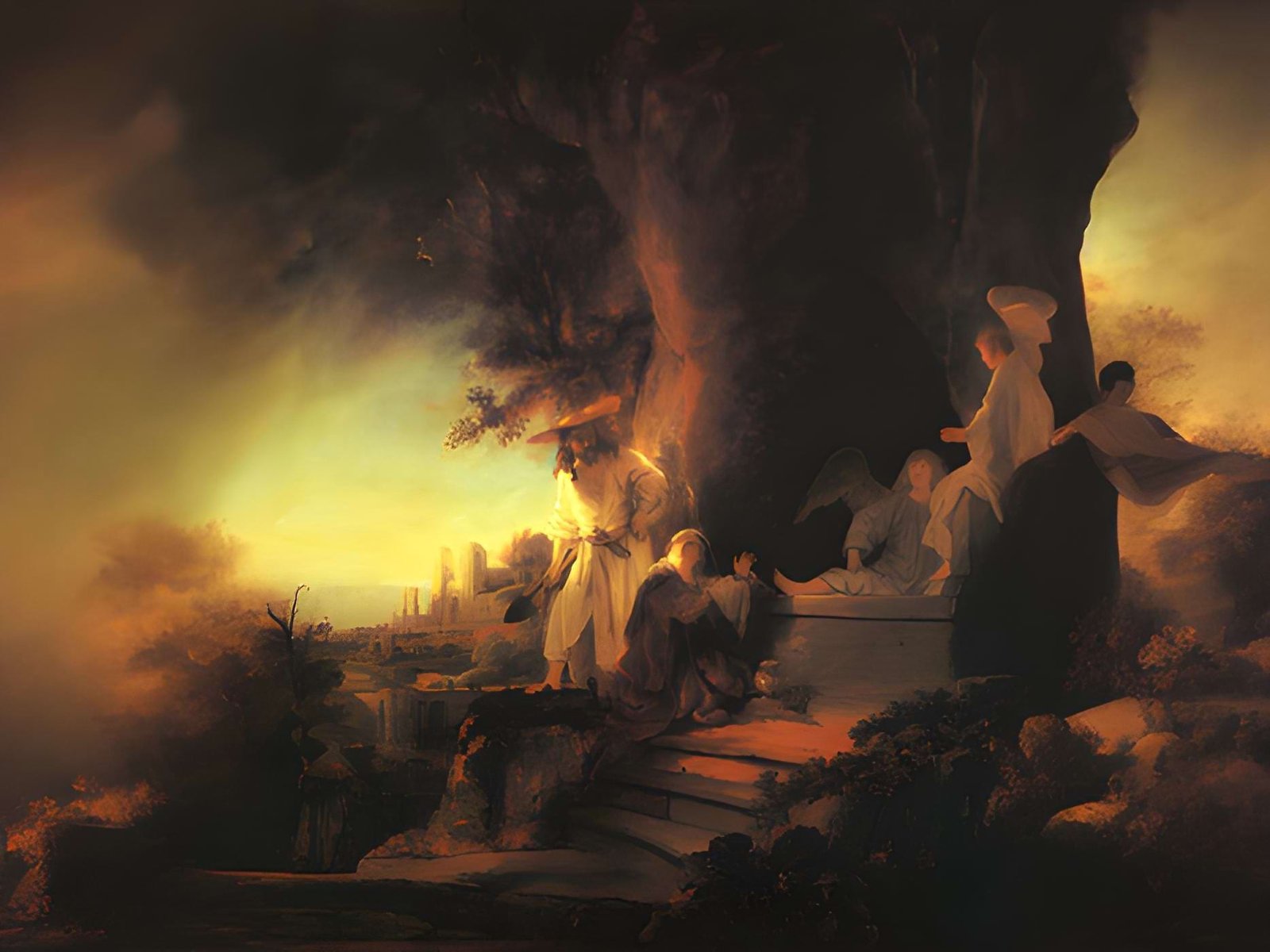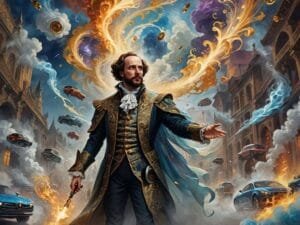When you’ve been writing about nonduality as I have, you become intimately familiar with the challenge of finding words for something deeply meaningful yet entirely ineffable. This is why, in my understanding, nonduality and religion can be perfectly compatible: whether we celebrate Jesus’s resurrection, contemplate the lotus flower blooming from muddy waters, or recognize the Jungian shadow within ourselves—often symbolized as the devil. In this spirit of metaphors, let me share a story.
You know those annual Easter family gatherings where everything begins in perfect harmony and somehow ends with Uncle Bob insisting the Mona Lisa hangs in Chicago? Our Easter Sunday was precisely that kind of beautiful chaos. Between the wine, the cheeses, and my nephew’s new girlfriend valiantly trying to remember everyone’s names, I witnessed something both ordinary and extraordinary: resurrection unfolding in real time. Not the supernatural kind (though the babi panggang was miraculously tender), but the kind that happens when love manages to outshine our human quirks and quibbles. As I passed dessert around the table, a realization crystallized.…
Table of contents
Resurrection at the Easter table
The Easter table radiates with warmth and abundance. Our family gathers—whole and healthy—a blessing not to be taken for granted. Grandparents, siblings, my nephews now grown with partners beside them, sharing stories that make me smile. Looking around, I think quietly to myself: the spirit of Christ truly is among us at the table. Not in some mystical way, but in how love brings us together, proving stronger than the peeves and misunderstandings that could have kept us apart.
This feeling at our table speaks to what Jesus taught, after all. It’s what His spirit represents. It’s what He promised would return to us after His suffering and death. Christ’s return isn’t entirely literal, it seems to me. It’s a symbol for faith in something good—for renewal, like our family gathering each spring when the world wakes up and we get together around the Easter table, celebrating what matters.
Mary Magdalene
During Easter Sunday afternoon, someone mentions their church’s online sermon about Christ’s resurrection. The priest talked about something I’d never noticed before: how Jesus appeared as a gardener to Mary Magdalene. She saw the stone moved from His grave, and when He said simply, “Mary,” she realized who was standing before her with gardening tools in hand.
The priest suggested that Jesus appearing as a gardener shows He immediately went back to work tending to human hearts, using His tools to clear away what was no longer needed. The sermon showed a Rembrandt painting of Mary Magdalene seeing the resurrected Christ with His gardening implements. Our conversation quickly shifts to where this painting might be housed—Edinburgh? London? Buckingham Palace?
And just like that, our family gathering slips into a familiar pattern. Everyone talks over each other about the painting’s location, no one really listening anymore. One lady at the table has already given the answer, but the gentlemen are too caught up in their debate to hear her. Listening well is something we’ve never been good at.
This is how the devil finds its way to our Easter table. Like Christ’s resurrection—but with opposite meaning—the “devil” isn’t some red creature with a pitchfork. It’s the ordinary evil we all know: division, misunderstanding, the need to be right. Our egos get tempted by those little moments of triumph: See? I knew the answer! And what do we sacrifice on the devil’s altar when we stop listening to each other? The very things that matter most: connection and meaning. Our weaknesses are so predictable, leaving me suddenly feeling lonely even when sitting close.
Diabolic temptation
I feel this same loneliness and helplessness when talking politics with people I care about. They say, “All politicians are just in it for themselves; you can’t trust any of them.” I nod and say, “Yes, they’re self-interested like all of us. But there’s a difference between those who want to build something better, even if it serves them too, and those who’d tear things down just to come out on top.”
It’s not easy to tell who’s who these days—especially with so much deception online. But I believe we must try to figure out who stands for team humanity and who doesn’t, before that choice is taken from us. That’s why free speech matters so much. It’s a diabolic temptation to give up on truth and each other.
Weeding out the lies brings clarity, and clarity shows the truest thing of all: love. That’s what Christ’s resurrection means to me—clearing away the cynicism and reviving our belief in love and truth.
Driving home later, I think about what I wish I’d said: Thank you, Jesus, for showing us how to never give up on each other.
You can support Marcel’s work , find gifts, and reach your full style potential at Marcel’s Booktique.
His books—in paper, pixel, and audio—can also be found at Amazon and other select retailers.
Looking for mindful & funny spiritual gifts, gear, deco, or gadgets? Why not check out the affordable Amazon Merch custom designs by Simply Nondual!
Share this article:




